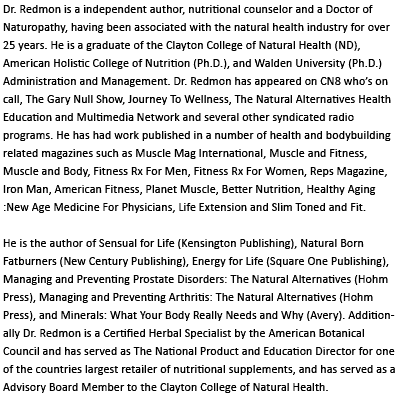Results here and success are usually referenced to increased muscle mass. However, researchers today and veteran warriors remind us that for the long haul , shifting some of that focus on how to build a indestructible skeletal system is paramount.
In fact, as cited by Dr. Stephen Holt, M.D., a renowned medical physician highly recognized as a advocate of natural medicine, a major problem with sports enthusiasts, body builders and athletes at all levels, is their preoccupation with body sculpting at the expense of skeletal health. Dr. Holt emphatically remarks that to make matters worse, the supplement market tends to development a multitude of products that focus on muscular development and improved performance, without supporting the changing metabolic needs of the skeletal matrix.
These statement suggest that as your body mass and your workload increases,, without improving skeletal development as a joint venture to coincide with building a muscular structure, you have set your house up for failure. More importantly, remember your muscle gains will only be as stable as the structure that houses it. The synopsis below outlines new research on some dynamic bone builders other than just calcium and vitamin D. These two supplements while important, despite common thinking, aren’t the Batman and Robin cure all that drives bone health. Infact, according to Dr T. C. Campbell, Professor Emeritus of Nutrition at Cornell University, it’s a undisputed fact that bone loss is much less common in countries that consume the least calcium. Some commonly known bone building supplements are cited below.
Boron
In a recent study conducted at the University of Medical Sciences in Iran, researchers reported that 2 mg of boron daily combined with 300 mg of calcium for 4 weeks increased bone strength and the mechanical properties of bone. Conversely, investigators at the University of California at Berkeley found that boron increases bone mineral density. Additionally, 6 mg/d of boron appears to reduce osteoarthritis pain and inhibits bone loss.
Suggested dose: 2 to 3 mg/d
Calcium
As the most abundant minerals found in the body 99% of calcium resides in the bones and teeth. Without calcium, adequate development and attainment of optimal bone mass can’t be achieved or maintained. This is due in part to the fact that bone is a living entity and goes thru cycles of constant building and rebuilding. Bone cells known as osteoclast breakdown bone and dissolve it referred to as resorption. The bone cells know as osteoblast then make new bone. So vital is this resorption and re-deposition not only to bone development but overall health, ( as calcium regulates heart beat ) , the body will breakdown existing bone to maintain normal blood levels of calcium. Sounds a lot like inadequate protein intake and muscle wasting.
Suggested dose: 1000 - 1200 mg/d
Magnesium
Magnesium keeps calcium dissolved in the blood. Low levels are associated with improper metabolism of calcium and reduced bone density. Magnesium is responsible for converting vitamin D to its active form ( D3) and stimulation of the hormone calcitonin. Calcitonon preserves bone and draws calcium from the blood and soft tissues into the bones.
Suggested dose: 400 – 700 mg/d
Vitamin B12 / Folic Acid/ Vitamin B-6
Implicated as a definitive biomarker linked to increasing heart disease, the protein homocysteine when elevated also disrupts normal physiological processes that solidify the bone matrix. Moreover, investigators at Harvard Medical School reported that high homocysteine levels increased the risk of hip and bone fractures. Dr Kilmer S. McCully, M.D. the author of The Homocysteine Revolution who first correlated elevated homocysteine levels to heart disease, discovered that B-12 and folic acid working synergistically with vitamin B-6 regulate imbalances of homocysteine.
Suggested dose: Vitamin B12 – 500 to 1000 mcg/d; Folic Acid – 350 to 400 mcg/d, B6, 3to3.5 mg/d..
Vitamin D
Vitamin D is manufactured by the skin via ultra-violet rays from the sun or via dietary intake. Vitamin D3 (cholecalciferol) is biologically active in human tissue, more so than ergosterol (vitamin D2). Without vitamin D calcium can’t be absorbed. Low levels stimulate bone loss and increases fracture risk.
New Research Update : Vitamin D Stimulates Muscle Regeneration
Dutch scientist Dr Lenus Kloosterboer of OrgaNext Research (Arnhem, The Netherlands), recently reported to The Endocrine Society that nandroline the active metabolite of the anabolic steroid nandrolon decanoate, stimulates expression of the vitamin D receptor in skeletal muscle, and that vitamin D correspondently accelerates the proliferation of human skeletal muscle cells. According to Kloosterboer, the synergistic action of these two compounds may help uncover the mechanism of action of muscle regeneration. The most fascinating aspect of this study was the fact that this receptor expression was more vital in aged human tissue than younger tissue.
Suggested dose: 1000 – 2000 iu/d
Vitamin K
Vitamin K regulates several proteins that initiate blood clotting. Recently, scientists discovered that three proteins within bone, osteocalcin matrix, GLA protein, and protein S , are also regulated by vitamin K. These proteins govern bone mineralization and accelerate normal bone growth . Osteocalcin is synthesized by osteoblast (bone forming cells), but needs vitamin D3 to complete this process. However it is vitamin K that transports and locks calcium into the bones not D3. Because of this fact researchers now know why individuals who aren’t calcium/D deficient may still encounter poor bone health. Fundamentally, without vitamin K, instead of bone building, the reverse process occurs, unrestrained calcium resorption (removal of calciun) from the bone.
Suggested dose: 120 mcg/d male; 90 mcg/d female
Note: Vitamin K is more active in its K2 form.
Last Words
Your skeletal system is a living reforming thing, which can’t be said of the foundation your home was built on say some 20 years ago. However, as you know once the foundation to any structure is compromised and not attended to, it will weaken and fall like a ton of bricks. You must be as aggressive as you are at retaining your muscle tissue, to ensure you maintain the health of your skeletal matrix. Taking a enriched multiple bone building supplement daily is a solid step in ensuring that the foundation where all that additional muscle mass will reside is sound and stays strong. You must protect your house!


